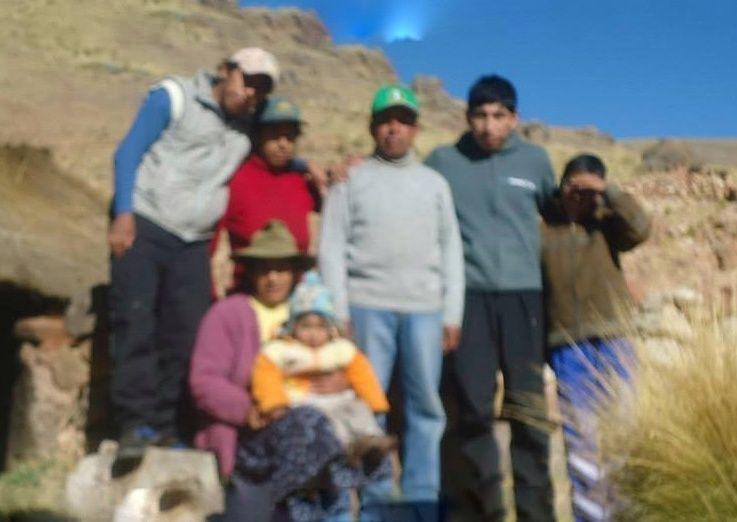My Story
“Somos un país de todas las sangres” (Jose María Arguedas).

1990: Time of being brave
I am a quechua, from Peru, and preserving knowledge was always a challenge in my family. My journey in language work began at the age of 6, when I accompanied and helped my mother Ninfa in her work to literate Quechua communities in Nuñoa (4000 masl), Peru. She had to travel long distances to alphabetize Quechua communities. My father Luis is a quechua singer and a veterinarian in my town. Together, with my sister Wendi and my brothers Yamel and Jorge – when everybody wanted to migrate to big/capital cities –, we decided to return to our roots, our culture, traditions, ancestral knowledge, to our identity.

I tried always be involved in the process of preserving our quechua knowledge through literacy, songs, poems, meetings, and being in contact with my quechua-peers in our communities.
2000: Moving forward to soustanible farming
My family and I started to move forward and decided to combine the school with soustanible farming. For instance, that years we decided to plan trees all over the mountain, around the house, next to some hiden places where trees might be covered from the intense sun radiation. The coming years we planted at around 200 trees, however a fired came into our farm and burned most of them, it also consumed the grass and the alpacas food.

2007: Studying for a better future
At the age of 17, I started my bachelor’s studies in Computer Science (Peru), with the intention of learning skills, methods, and tools to preserve my knowledge and language. Later, at the age of 23, I started my master’s studies in Digital Information Systems (Spain), where I specialized in digital preservation, repositories, content management systems, and librarian tasks, such as, organization, annotation, and representation of resources (documents, videos, websites, etc).
2017: When a Quechua meets Knowledge Graphs
To deepen my expertise, at the age of 27, I completed a master’s degree in Web Engineering (Spain), focusing on the curation of human knowledge stored on the web, and how to make it accessible and inclusive to all.
As a Quechuan, my connection to indigenous communities and under-resourced languages is deeply personal. Since 2019, I have dedicated myself to the harmonization and revitalization of the Quechua language, knowledge, and communities. I have founded the Qichwabase project with the aim of preserving Quechua knowledge, and developing technology for Quechua communities. For instance, Qichwabase, contains more than 25000 quechua lexemes, with senses in different languages, and covers more than 20 quechua dialects. Furthermore, I coordinated, supervised, and facilitated workshops, presentations, and discussions linked to the world’s knowledge, Quechua language, under-resourced languages, under-represented communities, and media and information literacy for all. During this process, my work on the Quechua Wikipedia was also featured in a Wikipedia documentary.
Currently, as a Ph.D. candidate at the University of Innsbruck (Austria), I have deepened my skills in lecturing, moderating online spaces, tutoring students, and researching. I have co-authored the book: Knowledge Graphs: Methodology, Tools and Selected Use Cases.
2024: Connecting to my roots
In this 2024, I coordinated a project in Peru to record voices of the Puno Quechua language, and currently over 1300 recordings on Wikidata are open and available to support Quechua language learners, researchers, and communities around the world.
2030: My goals
My goal is to continue supporting the preservation and revitalization of under-resourced languages by developing sustainable approaches and community-driven platforms. I hope to expand my impact and contribute to a global effort to revitalize endangered languages, support under-resourced languages, and empower indigenous communities.